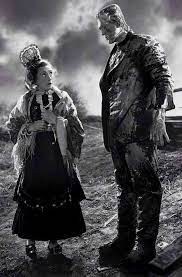"We do not enjoy a story fully at the first reading. Not till the curiosity, the sheer narrative lust, has been given its sop and laid asleep, are we at leisure to savour the real beauties. Till then, it's like wasting great wine on a ravenous natural thirst which merely wants cold wetness." - C. S. Lewis The most recent issue of
Gilbert (September/October 2022) contains an essay by Mark Johnson, "Old Friends Pay a Return Visit."
In the essay, Johnson notes his habit of reading classic novels every night. He has a fondness for 19th Century novels - a fondness I share.
But he ran into a problem.
After years of reading, he had read them all, even down to the "fourth tier." With nothing new to read, he was faced with the terrible prospect of "mid-life acedia.".
Then one night he dipped into
Middlemarch, a book he'd already read, to look a few of his favorite pages, and found himself caught up in the book again and completely reread it, enjoying it just as much - if not more - than the first time he read it.
Eureka!
So now he is rereading some of his "old friends."
In rereading, he discovered he is better able to keep the characters or plot twists straight, and found he is able to relax more with the books. In the process, he also realized that, "Some aspects of a novel are literally impossible to recognize until a second read." He is able to make connections; he has a greater level of maturity and understanding as well. "I'm now aware that the art inside great literature unfolds and blooms most vividly upon a second or subsequent read."
This essay resonated with me. I am also in the process of rereading. I just include more than the 19th Century novels that I like.
Rereading is not a new thing for me. As a teacher, I had to reread some of the books I was teaching to keep them fresh. I don't know how many times I've reread
To Kill a Mockingbird, Jane Eyre, Pride and Prejudice, and various of Shakespeare's plays. While I enjoyed the rereads, the purpose was professional.
Now I am rereading for pleasure books that I read 30-40-50 years ago. When I first read them, it was often because I had to read them for a class I was taking or teaching, or because I felt I was "supposed" to read them. Like Johnson, I find myself now not only enjoying them, but also that I am better able to appreciate their artistry and insights into human nature and the spiritual.
I don't, however, limit myself to 19th Century novels, though they are certainly in the mix. In recent months, I've reread St. Augustine's
Confessions, Brideshead Revisited, Chesterton's "biography" of St. Thomas Aquinas,
The Screwtape Letters,
That Hedeous Strength, Utopia, and The Lord of the Rings trilogy, to name a few. I'm currently rereading
The Imitation of Christ, and
The Brothers Karamazov.
Unlike Johnson, there are books I haven't read before - as an English and History teacher, I was often reading books for class, and did not have time for as much pleasure reading as I desired, and before that when I was a reporter, I was constantly reading the books and essays and background information of the people whom I would interview or the topics I was covering. So now I mix in the books I always wanted to read. I've read
The Idiot, for example, or
Oliver Twist.
Now that I'm retired, many more first reads and rereads await.
Les Miserable is on the list of rereads. So are more C.S. Lewis books. And I'm still aiming to read all of Frost's published poetry books, and all the novels of Dickens that I have not yet read.
One way in which Johnson challenged me is he mentioned he sat down to read every night at 9. I'm not sure how long he read each night, but clearly it was enough to get through so many great novels. I need to be a little more disciplined!
Johnson's essay revealed to me a kindred spirit. And as I reread, I, like him, will "make sure I don't waste great wine."
Pax et bonum




















